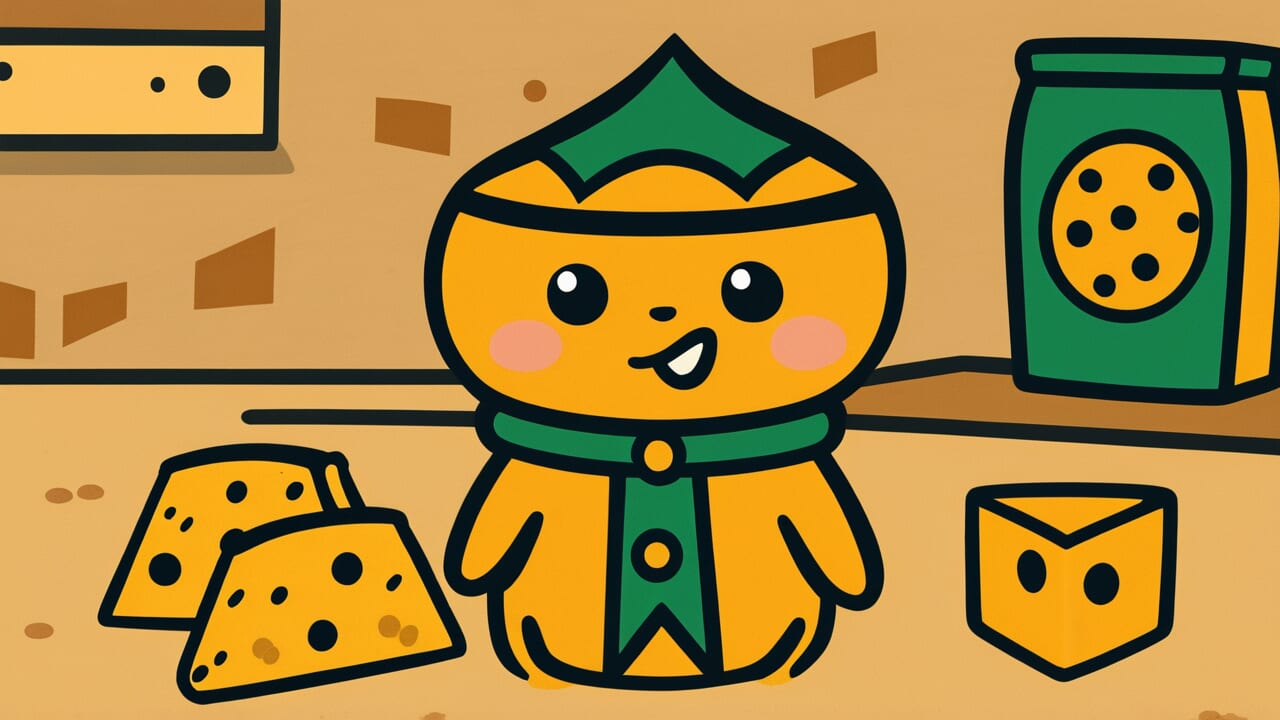How to Read “Cheese is a peevish elf, it digests all things but itself”
“Cheese is a peevish elf, it digests all things but itself”
CHEEZ iz uh PEE-vish ELF, it dy-JESTS awl THINGS but it-SELF
The word “peevish” means cranky or difficult to deal with.
Meaning of “Cheese is a peevish elf, it digests all things but itself”
Simply put, this proverb means that cheese has the power to break down other foods in your stomach, but it remains hard to digest itself.
The saying compares cheese to a cranky little magical creature. This “elf” can work its magic on everything else around it. But it cannot use that same power on itself. The proverb points out something strange about how cheese behaves in our bodies.
When we eat cheese with other foods, it helps break them down. Cheese contains enzymes and acids that can help digest proteins and fats. But cheese itself often sits heavy in our stomachs. Many people find it harder to process than the foods it helps break down.
This creates an interesting contradiction that people noticed long ago. Something that helps digest other things becomes the hardest thing to digest. The proverb captures this irony in a memorable way. It shows how even helpful things can have their own stubborn nature.
Origin and Etymology
The exact origin of this proverb is unknown, but it appears to come from European folk wisdom about food and digestion. Early versions of this saying likely developed when people began making aged cheeses regularly. Communities that relied heavily on dairy products would have noticed these digestive patterns.
During medieval times, cheese was a crucial food for survival. People stored it for long periods when fresh food was scarce. They would have observed how cheese affected their digestion daily. Folk wisdom about food was passed down through generations of cooks and healers.
The saying probably spread through oral tradition before appearing in written collections of proverbs. As trade routes expanded, different versions of food-related sayings traveled between communities. The playful comparison to an elf suggests it came from cultures with rich folklore traditions. Over time, the saying found its way into English collections of folk wisdom.
Interesting Facts
The word “peevish” comes from Middle English and originally meant “spiteful” or “malicious.” It later softened to mean “irritable” or “hard to please.”
The comparison to an “elf” reflects old beliefs about magical creatures causing everyday problems. People once blamed elves for things like spoiled milk or digestive troubles.
Cheese does contain enzymes that can help break down proteins, which gives some scientific basis to the proverb’s observation about its digestive effects.
Usage Examples
- [Nutritionist] to [client]: “You’re worried about digesting that heavy meal, but you loaded it with melted cheese – cheese is a peevish elf, it digests all things but itself.”
- [Chef] to [kitchen assistant]: “Don’t blame the spices for your stomach ache when you ate three grilled cheese sandwiches – cheese is a peevish elf, it digests all things but itself.”
Universal Wisdom
This proverb reveals a fundamental truth about how helpful things often carry their own burdens. Throughout human history, people have discovered that solutions frequently create new problems. The very qualities that make something useful can also make it difficult to handle.
This pattern appears everywhere in human experience. The strongest people often struggle to ask for help. The most generous individuals sometimes neglect their own needs. Tools that solve one problem often require special care themselves. We see this contradiction repeatedly because usefulness and difficulty often spring from the same source.
The proverb also captures something deeper about the nature of power and limitation. Even when we possess abilities that affect everything around us, we remain blind to our own flaws. We can see clearly how to fix other people’s problems while missing our own obvious issues. This blindness to our own nature seems built into how we experience the world. The cheese that digests everything else cannot digest itself, just as we often cannot apply our own wisdom to our own lives.
When AI Hears This
We feel drawn to people who change everyone except themselves. These unchanging leaders fascinate us because they seem immune to outside pressure. They transform their followers while staying exactly the same. This creates a strange mix of admiration and unease in us.
Deep down, we crave this kind of selective power for ourselves. We want to influence others without being influenced back. It feels safer to change the world than to be changed by it. This explains why we both worship and fear truly consistent leaders.
What strikes me is how this reveals human wisdom about power. You’ve learned that the strongest position is being the transformer, not the transformed. Those who digest everything while avoiding digestion themselves hold the ultimate advantage. It’s a brilliant survival strategy disguised as stubbornness.
Lessons for Today
Understanding this wisdom helps us recognize when our strengths become our weaknesses. The things we rely on most heavily often require the most careful handling. Just as cheese needs special attention despite its helpful properties, our most valuable tools and relationships need extra care.
In relationships, this means watching for moments when our helpful nature becomes overwhelming. The person who always solves everyone else’s problems might struggle to solve their own. The friend who gives great advice might resist taking advice from others. Recognizing this pattern helps us stay humble about our abilities and limitations.
For groups and communities, this wisdom suggests being patient with valuable but difficult members. The person with the most expertise might also be the hardest to work with. The tool that solves the biggest problems might require the most maintenance. Instead of expecting perfection from our most useful resources, we can plan for their quirks and limitations. This approach leads to better outcomes than demanding that helpful things also be easy to handle.



Comments